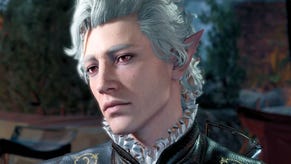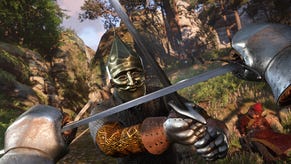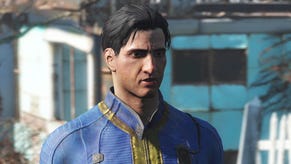Gosen slams Microsoft over console transition
Nintendo Europe managing director David Gosen has strongly criticised Microsoft for attempting to drive the industry to a hardware transition too early, and also attacked the games media for its focus on the next generation.
Nintendo Europe managing director David Gosen has strongly criticised Microsoft for attempting to drive the industry to a hardware transition too early, and also attacked the games media for its focus on the next generation.
Speaking at the ELSPA Games Summit in London, Gosen described the industry's current generational cycle as a "self-fulfilling prophecy," saying that the industry was stuck in a mindset where "five to six years is right, and come what may, we're going to stick to it."
While he admitted that it was too late to change this cycle this time around, he argued that it was vital that the industry break out of it in the future - and he had some particularly barbed comments for Microsoft, for whom he claimed that games profitability "is not their key motivation" in aiming to launch the Xbox' successor during 2005, after only a four year lifespan for the original console.
"In every cycle, some manufacturer not profiting from the current cycle is eager to kick-start the next one," he commented, but went on to suggest that first-mover advantage was not necessarily as important as it may seem, quoting the example of failed consoles such as the 3DO which launched well ahead of rival systems.
He also criticised the games media for focusing too much on next generation software and hardware, to the exclusion of the current generation. "For every game magazine editor bored with current products, there are hundreds of thousands of gamers around the world just discovering them," he said.
"Hard as it may be for those editors to believe, not everyone outside their circle is prepared to pay a high price for a new console," he continued, going on to argue that "today's gamers are still hungry for today's games," quoting a statistic which showed that 33 per cent of GameCube purchasers last Christmas already owned a PS2 or Xbox.
Gosen was also critical of a number of other trends in the industry, picking out the current vogue for mature games in particular as a problem. "Grand Theft Auto, ultimately, is a dead end street," he told the summit, saying that "as a businessperson, I don't relish the role of defending our business from charges of gratuitous violence."
He accused the industry of paying too much attention to a narrow demographic of consumers who have grown up with videogames and are now in their thirties, and failing to appeal beyond those boundaries - either to older or female audiences, citing the example of the hugely popular Pogo.com game website, or to the ten year-old gamers whom he described as vital to repopulating the industry.
European retailers also came under fire, with Gosen attacking the current trend for bundling huge numbers of games with consoles. "If we give consumers ten games in a bundle, of which eight are sure to disappoint, what have we actually achieved?" he asked. "A disaffected consumer."
"Every free game is taking away hours that could be spent playing games they had actually paid for - imagine that!"
However, he said that despite all the challenges, he remained optimistic for the coming transition to next generation consoles. "We are smarter for having lived through these transitions before," he said, " and, I believe, learning from them." He went on to argue that it was in the power of the industry "to avoid artificially triggering a new generation before we are ready to deliver it."








